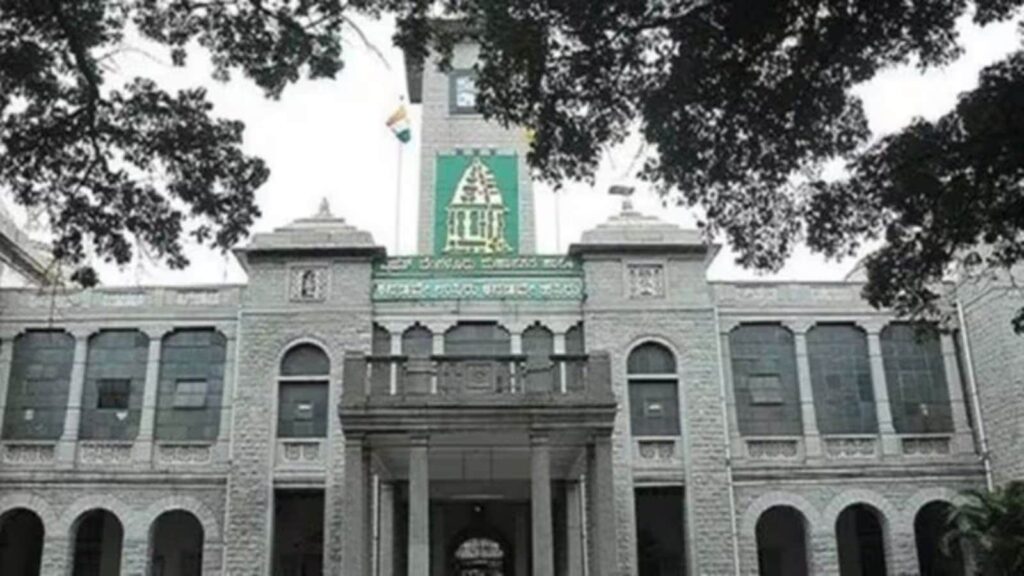The Karnataka government Saturday issued a draft notification for the formation of five municipal corporations under the proposed Greater Bengaluru Authority (GBA).
According to the draft, the Bruhat Bengaluru Mahanagara Palike (BBMP) area will be reorganised into five corporations – Central, East, North, South, and West. Each corporation will include a group of Assembly constituencies and the wards within them, with some partial exclusions.
The Central Corporation will cover constituencies such as CV Raman Nagar (SC), Chamarajpet, Chickpet, Gandhi Nagar, Shanthi Nagar, and Shivaji Nagar, with all wards under them included.
The East Corporation will comprise KR Puram and Mahadevapura. While all wards under KR Puram will be part of the new corporation, Mahadevapura will be included, except for a portion of the Bellandur ward.
The North Corporation will include Byatarayanapura, Dasarahalli, Hebbal, Pulakeshi Nagar (SC), Rajarajeshwari Nagar, Sarvagna Nagar, and Yelahanka. In Dasarahalli, only the Shettihalli, Mallasandra, Bagalkunte, and T Dasarahalli wards will be brought under the new setup. Pulakeshi Nagar will contribute only the Kushal Nagar ward, while parts of Jalahalli, JP Park, and Yeshwanthpura under Rajarajeshwari Nagar will come under the jurisdiction of the North Corporation.
The South Corporation will bring together BTM Layout, Bengaluru South, Bommanahalli, Jayanagar, and parts of Mahadevapura, Padmanaba Nagar, Rajarajeshwari Nagar, and Yeshwanthpura constituencies. Specifically, only a portion of the Bellandur ward from Mahadevapura will be included. From Padmanaba Nagar, the wards of Banashankari Temple, Kumaraswamy, Padmanabhanagar, and Chikkalasandra, along with Kumara Swamy Layout, will be added. Parts of RR Nagar ward and a portion of Hemmigepura will also be integrated into this new administrative unit.
The West Corporation will span Basavanagudi, Govindaraja Nagar, Mahalakshmi Layout, Malleswaram, Padmanaba Nagar, Dasarahalli, Rajaji Nagar, Rajarajeshwari Nagar, Vijaya Nagar, and Yeshwanthpura. Only some wards from these constituencies will be covered, including Chokkasandra, PIA, Rajagopalnagar, and Hegganahalli from Dasarahalli; Hosakerehalli, Ganesh Mandir, Kari Sandra, and Yediyur from Padmanaba Nagar; and HMT, Lakshmidevinagar, Laggere, Kottegepalya, Jnanabharathi, and parts of RR Nagar from Rajarajeshwari Nagar. All but a portion of the Hemmigepura ward in Yeshwanthpura will also be part of the West Corporation.
Story continues below this ad
With this, GBA is set to take over the city’s governance, marking the end of BBMP in September 2025. The notification has been published in the official gazette and is open to public scrutiny for 30 days. Citizens, civil society organisations, and stakeholders can submit objections or suggestions to the Additional Chief Secretary, Urban Development Department.
The government stated that the formation of multiple corporations is in accordance with provisions under Sections 5 and 7 of the Greater Bengaluru Governance Act (GBGA). The rationale is rooted in the need to improve urban governance by making administration more localised and accountable.
Each of these corporations will have independently demarcated jurisdictions with functional autonomy in urban planning, solid waste management, infrastructure development, and public grievance redressal.
Earlier in the week, Karnataka Deputy Chief Minister D K Shivakumar, who is also the Bengaluru development minister, had said that the new GBA would have five city corporations under it.
Story continues below this ad
Shivakumar said elections would be held soon for the new bodies. There has been some opposition to dividing BBMP into smaller bodies, but the split is essential to improve administration in the city, he added.
The notification comes even as Citizens’ Action Forum has challenged the formation of the GBA before the Karnataka High Court, citing contravention of the 74th Amendment of the Constitution.
The Public Interest Litigation (PIL) seeks to strike down the establishment of the GBA, its composition, powers, and functions, including urban planning, infrastructure development, and coordination of local bodies. The GBA can issue directives, acquire land, manage funds, and delegate powers to municipal corporations, which are also tasked with managing public markets, collecting taxes, and forming ward committees for local governance.
The petition challenges Sections 9, 10, 13, 14, 15, 85, 95, 96, 100(2)(iv), 101, 103(4), 129(2), 130, 137(2), 145, and 249 of the GBGA, which was notified by the state government on April 24.


